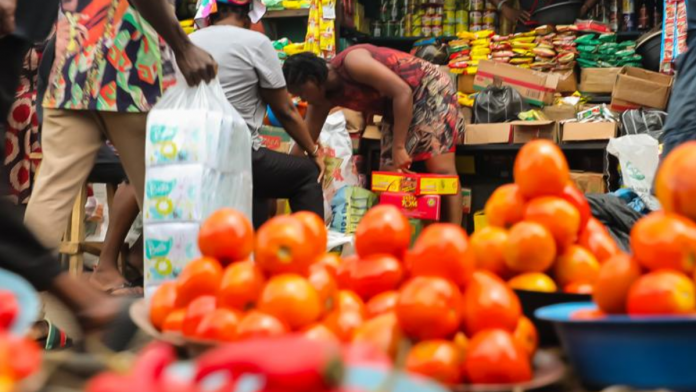News in brief:
– The NBS reports significant year-on-year increases in food prices in Nigeria, with onions leading at 122.9%, while transport fares show mixed trends, with bus fares decreasing month-on-month but still 40% higher year-on-year.
– This data raises concerns about affordability for households, especially low-income ones, with experts highlighting potential threats to food security and economic activity.
The National Bureau of Statistics (NBS) has released reports that reveal a concerning mix of price fluctuations and increases in Nigeria, painting a picture of ongoing economic pressures. While some food prices soared year-on-year, transport fares offered a mixed bag, with some dropping slightly month-on-month but still exhibiting significant annual hikes.
On the food front, onions led the charge with a staggering 122.9% year-on-year increase, leaving a kilogram costing a hefty â¦971.86 in December 2024 compared to â¦435.93 a year ago. Unripe plantains followed suit, jumping 114.58% to â¦746.04 per kg, and the average price of sweet potatoes across the country was 105.00% higher over the last one year.
Also, tomatoes prices joined inflationary figures, witnessing a 77.6% surge to â¦814.16 per kg compared to December 2022 numbers.
However, the transport sector presented a less uniform picture. Bus fares within cities defied the upward trend, dipping 13.83% month-on-month to â¦902.70 in December, although they still remained 40% higher year-on-year compared to the previous December. Air travel, in contrast, continued its ascent, with the average single journey on specified routes climbing 5.36% month-on-month to â¦85,692.12 and a worrying 14.8% year-on-year.
Motorcycles (Okada) offered some relief, with fares decreasing 11.29% month-on-month to â¦419.73, but a 9.04% year-on-year increase compared to December 2022 tempered the relief. Water transport fares also edged up slightly, registering a 2.5% month-on-month bump to â¦1,386.76, while a 34.77% year-on-year climb compared to the previous December highlighted the persistent inflationary pressures.
Ultimately, the NBS reports raise concerns about affordability and accessibility for Nigerian households, particularly low-income ones. Experts opine that the soaring food prices threaten food security, while fluctuating transport fares add another layer of uncertainty to daily life, while potentially impacting economic activity.



